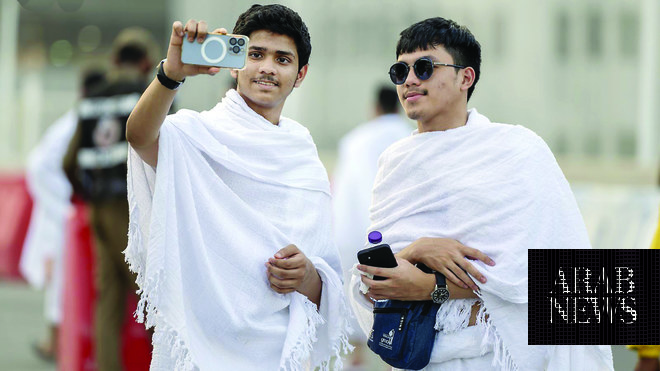MAKKAH: Every hajj season, Muslims from all over the world, representing different languages, cultures and traditions, gather in holy cities.
Beyond its religious significance, the pilgrimage offers a platform for cultural engagement among worshipers, showcasing the rich cultural heritage of the global Muslim community.
Cultural diversity is visible not only in the traditional costumes of pilgrims, but also in the variety of languages that can be heard in the neighborhoods of Mecca, in the Grand Mosque and the roads leading to it, and on public transport.

Fawaz Al-Dahas, professor of history at Umm Al-Qura University, emphasized the understanding and solidarity of Muslims who gather for one purpose: to perform the Hajj.
Despite different languages and cultural origins, pilgrims strive for mutual understanding, harmony and kindness so that their pilgrimage is accepted and that their efforts are not in vain, he added.
“Cultural exchange during the pilgrimage is a unique and enriching opportunity. Pilgrims learn about the customs and traditions of other countries, opening new horizons and deepening their knowledge,” Al-Dahas said, adding that this leads to greater respect and deeper understanding among people from different backgrounds.

“The Hajj promotes the concept of one nation in which all pilgrims are equal, regardless of race or nationality,” Al-Dahas said.
“By wearing ihram, all pilgrims have a sense of equality and belonging to one community, supporting peaceful coexistence. This experience teaches patience, tolerance and cooperation in performing rituals, further strengthening the spirit of understanding and coexistence among Muslims when they return home.”
Hajj also promotes cooperation among Islamic nations in areas such as health, safety and logistics as governments work together to ensure pilgrims’ safety and comfort, he added. This cooperation fosters fraternal relations and solidarity.

Thanks to this annual event, Muslims bridge cultural and geographical divisions. Hajj highlights the value of interaction between peoples and nations, showing how diversity can be a strength in society.
Rania Shawdary, mutawif (pilgrim guide), said: “The Hajj is an important annual event that reflects the Kingdom’s considerable efforts in serving pilgrims from around the world. Pilgrims witness first-hand the extensive range of services and facilities on offer, encouraging them to collaborate, participate and observe everyone working together to make this wonderful ritual for Muslims a success.”
She highlighted the generosity and hospitality shown to pilgrims from different parts of the world with free services such as water, food and accommodation.

Pilgrims learn the importance of social solidarity by sharing food and helping each other perform rituals, thereby strengthening the spirit of solidarity and brotherhood, Shawdary said.
“The common challenges and difficulties they encounter during their journey encourage pilgrims to help and cooperate with each other, helping them put aside their differences.”
Majid Al-Mufadhli, a Saudi journalist who has been covering pilgrimage events for years, said the media plays a significant role in communicating the hajj experience to the world.
“This helps promote understanding and communication between different cultures, as media coverage of the pilgrimage and the stories and experiences of pilgrims raise awareness of the importance of the pilgrimage and its role in uniting Muslims,” he said.
Social media platforms also improve communication between pilgrims, their families and friends, and among believers themselves, facilitating the exchange of experiences and cultures and promoting understanding, Al-Mufadhli added.
“Pilgrims face significant challenges in crowd management, working together and following plans set by responsible authorities, which prompts them to cooperate and harmonize with each other to be able to perform rituals comfortably and easily,” he said.
The pilgrimage also provides an opportunity to innovate in areas such as crowd management, health and transport technologies, using modern technologies to ensure safety and comfort. The atmosphere of cooperation shows the world that Muslims are an organized and compassionate community, able to adapt to ensure the safety and comfort of all.
“Hajj is an opportunity and an extraordinary meeting that unites languages and cultures. By participating in this great event, pilgrims will learn the values of generosity, hospitality, love and brotherhood, returning home with a new spirit of unity and cooperation,” Al-Mufadhli said.

